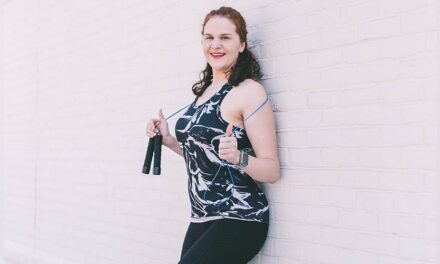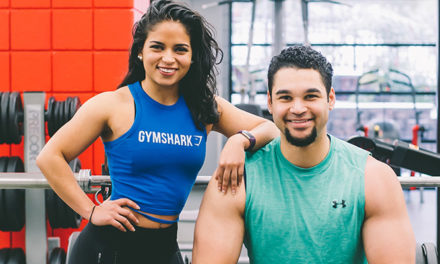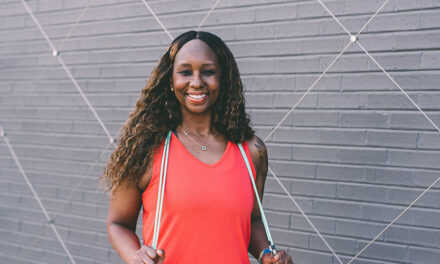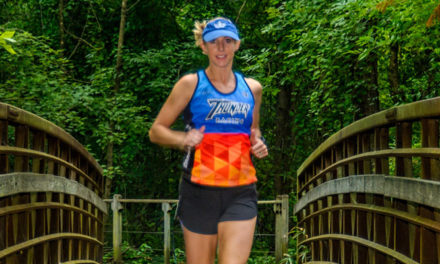At just nine months old, Ryan Stephens was undergoing heart surgery to correct a defect called tetralogy of Fallot. It’s a rare condition caused by a combination of four heart defects that are present at birth. Now the 35-year-old nurse practitioner is working with kids and adults to show them that such diagnoses should not hold them back.
Ryan is an integral member of the Le Bonheur Mid-South Adolescent-Adult Congenital Heart Disease team, which was established to help children living with complex congenital heart disease transition into adulthood and continue receiving the care they need.
As a teenager heading off to college, it’s a program Ryan could have benefitted from had it existed at the time.
“When I graduated from high school, I saw a cardiologist before I went to college and I didn’t see another one until I was 23 or 24,” he explains. “If I had not been a self starter, I probably wouldn’t have done anything unless I had a symptom or a problem.”
Ryan says he’s fortunate that he didn’t require subsequent surgeries after the initial correction he had as a baby, but that’s not the case for most people born with the same condition.
“Many people with that diagnosis have multiple surgeries for it,” he says.
Ryan still has regular appointments with his own cardiologist, Benjamin Rush Waller III, MD, director of the Adult Congenital Heart Disease Program. Being a patient of the program himself makes Ryan a trusted ally and advocate for other patients enduring the same tests and lifelong heart monitoring.
“I know my experience is different than theirs, but it’s not that different,” he says. “I get it when they’re upset. I get it when they’re frustrated. I get it when they’re depressed. I get it when they have to take a medicine they don’t want to take. I get it when they have to come in and take these tests, and I get it when they have to spend $2,000 on an echocardiogram, which is really frustrating. If it helps them at all to see someone who understands, then that’s worth it.”
Despite his early diagnosis, Ryan has lived life pushing the limits. He played sports throughout childhood, and it wasn’t until he wanted to join the seventh grade football team that he truly understood he was different.
“It was one of those crushing moments as a middle school kid when you’re just trying to fit in and just trying to be like everyone else,” he recalls. “It’s the one thing in Alabama that you’re supposed to do in high school, and they wouldn’t let me.”
Ryan didn’t stay sidelined for long. He played baseball instead and made the basketball team his senior year. He even went on to play baseball at Harding University, where he attended nursing school and met his wife, Laura.
Now, as a husband and father of two, Ryan continues to show his patients what’s possible. He has run several marathons and is training to compete in a full IRONMAN in 2022.
“I’m capable of doing so much more than I think that I’m capable of doing. It’s the reason I do some of these silly things. If I can do it, maybe somebody else will think they can do it too.”
Ryan used to subscribe to the idea that working out was best as a solo activity and convinced himself that it was more enjoyable that way.
“I naturally learned that’s total bull. That was just me trying to protect myself and not be vulnerable or worry about someone being better than me because I’m naturally competitive in general.”
Before COVID, he did boot camps with a men’s group called F3 in Overton Park. After things started shutting down, he and a few guys from that group who live in the same neighborhood continued working out together. They do a mix of things like cycling, running, boot camp workouts, and month-long challenges. It’s that competitive nature that has pushed Ryan to stay active over the years.
Now, he stresses the importance of physical activity for overall health and wellbeing despite the obstacles many may face. He knows what it does for your self worth and value. In addition, the endorphins and dopamine response that come from being active, being in nature, and breathing fresh air can change the way you engage with the world.
“A lot of people have different pre-existing and acquired conditions, but that just means there is something you have to consider when you choose to be active,” he says. “Everybody needs to be moving.”
By Kelsey J. Lawrence
Photo by TIndall Stephens







